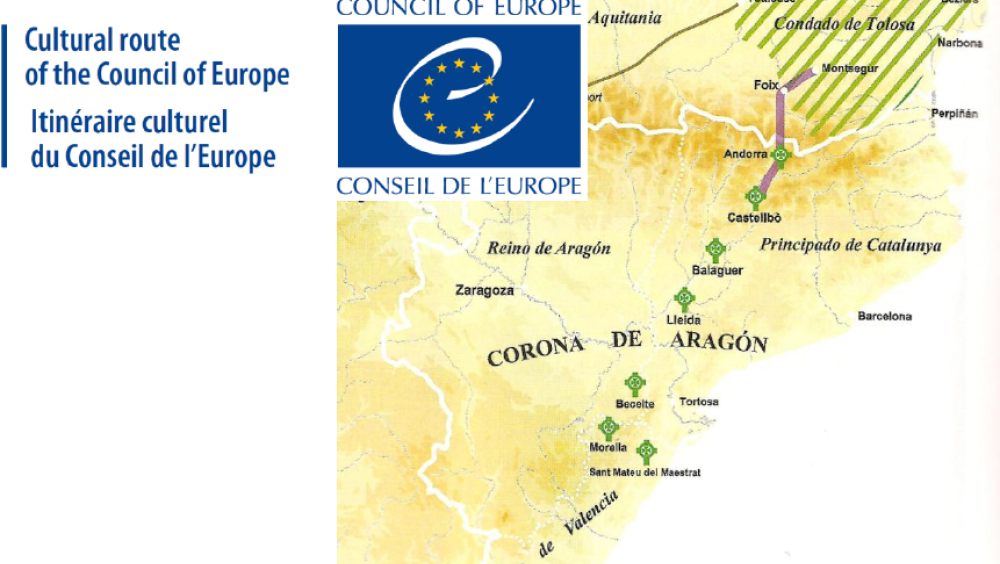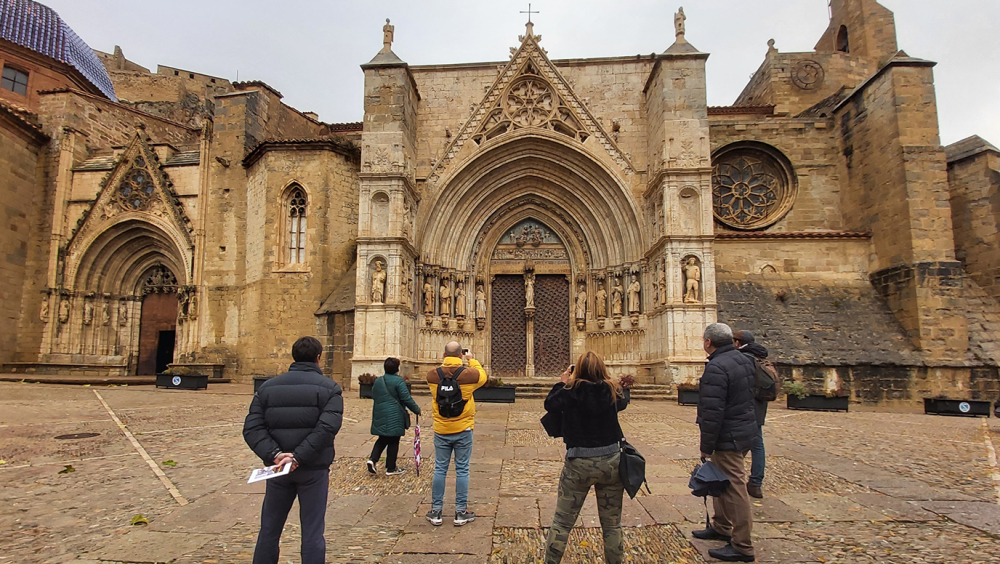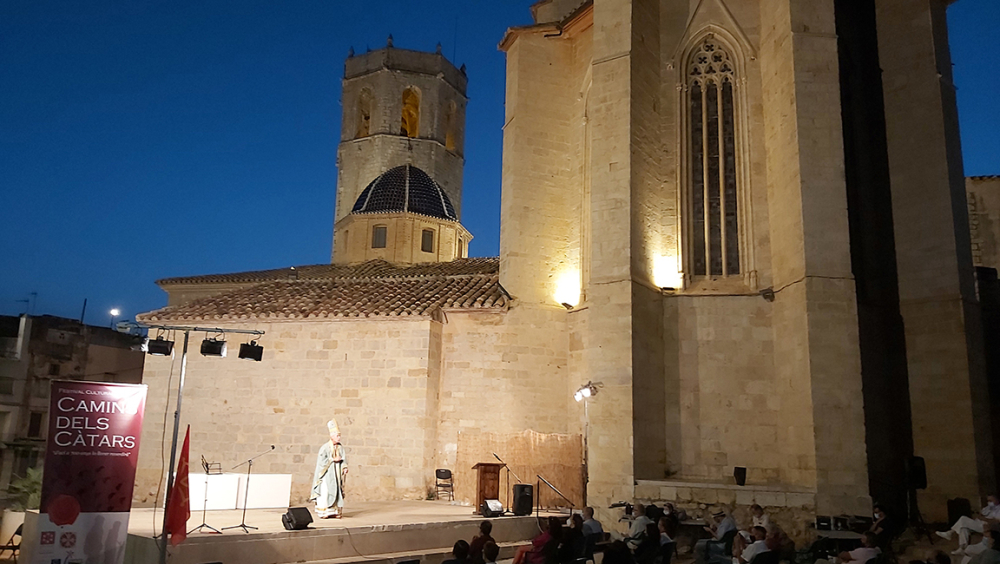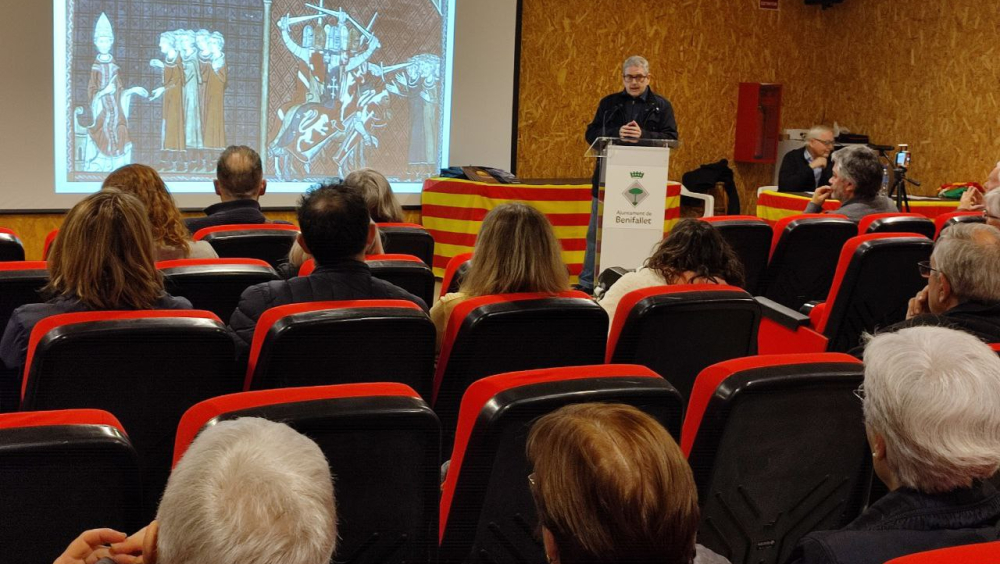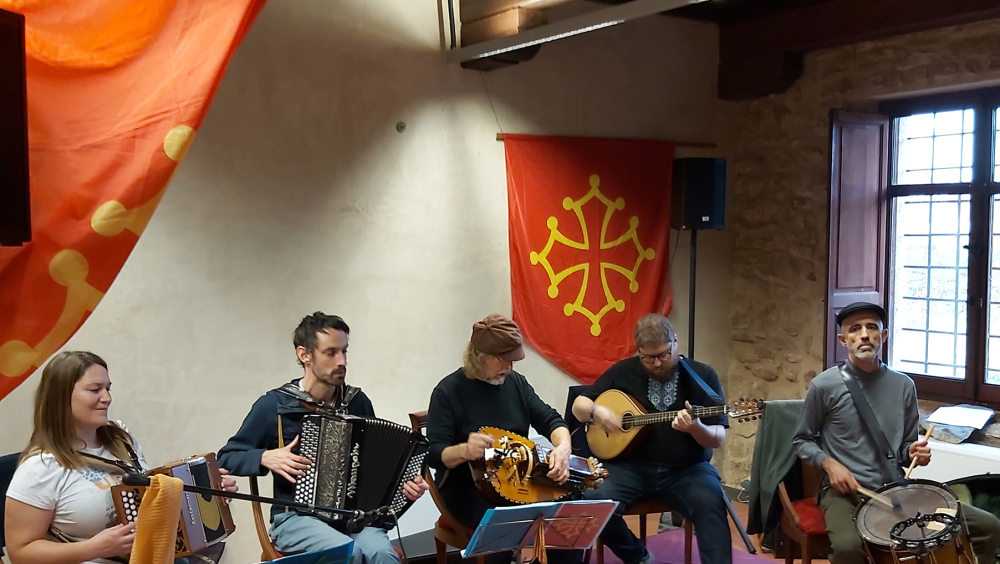An extraordinary story: the route of the cathars
An extraordinary story: the route of the cathars
At the end of the middle ages, between the middle of the 13th century and the first third of the 14th century, the Catalan and Valencian lands were home to one of the last cathars populations in Europe. It was one of the largest European exiles in which the cathars fled from the French inquisitors, who intended to exterminate them, considering them heretics, given their heretical Christian beliefs.
They were paths of pilgrimage and exile through which they traveled, from the south of France, from Occitania to the new lands conquered by king James I, with a great economic expansion was directed south of the Ebro: Tarragona and Valencia, where many of its towns became important cathar refuges, where they lived with new and old christians, moors and jews.
This route from Occitania to the south of Catalonia and north of Valencia used the historic roman roads, medieval paths and, above all, the livestock paths of transhumance, generating an Occitan influence in art, music, commerce, crafts and in the commercial and cultural expansion with a very similar language.
Many towns in the area were a refuge for those good men who lived here in relative calm and left their cultural and spiritual imprint. Following the Route of the Cathars route we will be able to contemplate the same landscapes and monuments and, perhaps, we will also hear the murmur of its unique history.
Those who do not remember history are forced to repeat it. This route aims to bring to light a history that has been hidden for many centuries and that unites territories and regions, separated by many borders, but united by their ancestral cultural legacy through their historical paths that still endure in the territory and in its ancient history.
The route of the cathars: a european cultural itinerary
The project festival route of the cathars, a European cultural itinerary is set in the territory south of the Pyrenees, in Spain, in the region of Catalonia and Valencia, which was one of the main refuges in medieval Europe of the cathar community, persecuted by a cruel crusade of the Inquisition. It is a territory with a diversity of historical, cultural, natural and musical resources, etc., spread throughout its extensive territory, which still preserve the history and culture of the passage of the European cathars.
The objectives of the proposed activity, framed within the framework of a European cultural festival, the route of the cathars, are to highlight the cultural value of a unique history, ancestral traditions, religious values and features in the landscape that have left their mark on the paths that we can still see today.
The social and cultural repercussions are wide-ranging and diverse. On a social level, it is estimated that the development of a European festival in the surroundings of the route of the cathar can have an important repercussion in the generation of social impact, promoting the initiatives that participate in the festival itself in the various activities planned, as well as reinforcing the social values of the traditions bequeathed from the medieval period.
On a cultural level, we consider the organisation of this cultural festival to be relevant in order to promote a territory of historical crossroads with one of the most prestigious international cultural labels, the European Cultural Routes of the Council of Europe. All of this, in addition to boosting the cultural environment of many of the municipalities, through direct participation with the local population.
The celebration of the route of the cathar festival aims to become a European cultural reference point for the history, traditions and values of catharism in Europe.
Main objectives:
To encourage the celebration of different cultural activities that aim to disseminate, value and promote the history, culture and values of the cathars in a “better Europe”.
To encourage the cultural promotion of the history, heritage and values (tangible and intangible) bequeathed by the cathars in Europe.
To encourage a cooperation project cultural, educational and touristic heritage in Europe, aimed at the elaboration and promotion of an itinerary based on a historical route, a concept or cultural phenomenon with transnational importance and significance for the understanding and respect of common European values.
Main lines of action:
The priority axes of action to be developed with this project are cooperation in research and knowledge; the enhancement of historical memory and its heritage; cultural and educational exchanges for young people; the promotion of cultural and artistic activities; and the development of sustainable cultural tourism.
It is proposed to develop a cultural festival with a European projection that brings together the different activities and promotional projects on the cathars in its area of action, in order to reinforce its European cultural projection and increase its social and economic impact on the territory.
It is also proposed to foster a tourism cooperation network to promote European cultural heritage on the theme of the cathars and their historical memory, articulating opportunities in European projects for the development of cultural programmes.
Proposed actions:
The proposed actions are as follows:
Cultural meeting of knowledge route of the cathars, with the celebration of conferences and presentations of the project of the European cultural itinerary Route of the Cathars and guided tours of cultural interpretation in the municipalities hosting meetings.
During these days, there will be a poetry recital by local authors, with poems dedicated to the cultural values of the cathars, their landscapes and their European routes.
In each of the meetings there will be a small commemoration of the historical passage of the cathars through the municipality with the planting of a tree, a laurel.
Cultural meeting, cinema forum routhe of cathar, with the screening of the film Bogre, the great European heresy of the cathars, in French, Occitan, Italian and Catalan, with a presentation and public debate.
These cultural days will be promoted with the publication of brochures in various languages and a cultural promotional video.
Timing:
The meeting cultural are scheduled to begin between September and October 2023, with a variety of cultural events, aimed at all audiences, especially the public with sensitivity for history, culture, artistic traditions and music of medieval origin and with free admission, respecting the capacity measures required at all times.
City of the meetings culturals:
The cultural festival route of the cathars are scheduled to take place in the following municipalities:
Horta de Sant Joan (province of Tarragona, Catalonia)
Paüls (province of Tarragona, Catalonia)
Flix (province of Tarragona, Catalonia)
Isòvol (province of Lérida, Catalonia)
Albocàsser (province of Castellón, Valencia)
The festival will take place over 5 weekends (10 days) spread over five days in each of the above-mentioned municipalities and is expected to be attended by a total of 100 people.
The territorial scope of this festival is located in inland municipalities, affected by depopulation and rurality, but with great potential in the enhancement of their cultural resources and their European projection.
Accessibility and social inclusion:
The proposed European cultural days will meet the criteria of physical accessibility for all audiences and adequate social inclusion in order to comply with current legal requirements to encourage the widest possible participation of all target audiences.
Collaboration with public and private entities:
The cultural festival route of the cathars, in the framework of cultural routes of the Council of Europe, is proposed to be carried out in collaboration with the public and private entities involved, such as town councils and local cultural associations and of European interest.
The Route of the Cathars, a European cultural itinerary, has a clear European dimension as it focuses on an extraordinary history of medieval Europe, which still preserves its cultural heritage and values (tangible and intangible) today.
The European dimension is fulfilled with the aim of promoting dialogue and exchange of good practices in the field of valorisation of a European history, under the criteria of collaboration at local, regional and European medium levels and in the framework of the European cultural routes of the Council of Europe.
The planned activities will involve cultural activities with the participation of local communities, with the inclusion of disadvantaged groups and young people and with sustainable measures on the natural environment.
This project involves European cooperation with municipalities in France such as Montaillou, Termes, Minerve or in Italy such as Montforte d'Alba.
